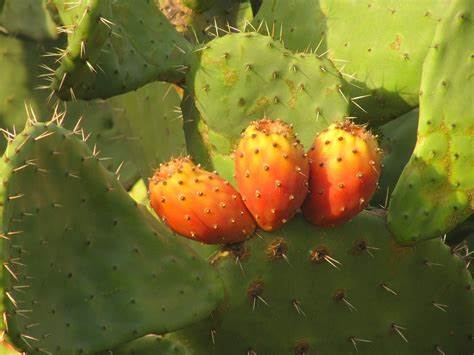(4 minutes read)
Prickly pear trees, which are grown widely in the deprived and desert region of Tunisia-Zelfen-is changing the fortunes of the ordinary people. From this tree, only oil for anti-wrinkles and anti-aging is extracted, which is gaining currency in the cosmetic markets across the world
Prickly pear trees, which are grown widely in the deprived and desert region of Tunisia-Zelfen-is changing the fortunes of the ordinary people. From this tree, only oil for anti-wrinkles and anti-aging is extracted, which is gaining currency in the cosmetic markets across the world. The oil is processed from the seeds of the cactus fruit and is believed to be a panacea for a few diseases and in the upkeep of the human body. That makes its marketing easy and swift across the world.
The oil does not come for a song; a liter costs close to 350 euros. Farmers are upbeat about the plant, which can grow in arid conditions and does not require water and tending. That makes the farmers breath free since the production cost is almost nil since the trees bearing pointed pricks can be grown in organic conditions without the application of chemical fertilizers and pesticides. Enthused by its steadily increasing export market, farmers are cultivating the plant in hectares, and each year witnessing an incremental increase in acreage under cultivation of the wild cactus.
According to available statistics, the sector employs more than 5,000 people. The project to grow prickly pear is supported by the United Nations Industrial Development Organization (UNIDO), along with the Tunisian government through its various schemes. It is cultivated for commercial purposes on 117,771 hectares in Tunisia, behind Brazil, Mexico, Ethiopia, and Morocco, where this wonder plant is a craze, given the desert climate in these countries. Of the total produce, Tunisia exported nearly 8,000 liters in 2021, fetching Euro 5 million. Exports are registering quick growth. Between 2019 and 2021, exports registered a growth of close to 50%.
Read Also:
https://trendsnafrica.com/summit-of-the-international-organisation-of-francophone-in-tunisia/
https://trendsnafrica.com/floating-solar-station-commissioned-in-tunisia/
https://trendsnafrica.com/eus-grant-to-tunisia-to-tie-down-its-financial-crisis/
Now Tunisia is wanting to enter dynamic markets like Japan and South Korea, where, according to analysts, there could be a huge market since both men and women would get attracted to its anti-aging attributes. There are other challenges also, such as marketing problems; because of which, not all produced seeds are sent for processing. In certain cases, growers can send only 20% of their total production to the market. The high prices it commands in the international market act as a deterrent in pushing up its demand, making it affordable only to the rich.





